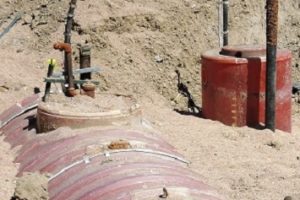October 2018 is the final deadline for complying with the remaining requirements of the federal 2015 underground storage tank (UST) amendments. If you are not already in compliance with these amendments, it is time to start preparing. Today we will look at the status of state adoption of the 2015 UST amendments and the training requirements that must be in place by October 2018.
The UST amendments for which compliance is required by October 13, 2018, concern:
- Training
- Site assessment records for groundwater and vapor monitoring
- Release detection and other requirements for previously deferred USTs
- Operation and maintenance requirements concerning conducting of first tests or inspections for:
- Spill prevention equipment
- Overfill prevention equipment
- Containment sumps used for piping interstitial monitoring
- Release detection equipment
- Walkthroughs of the facility
What About My State?
Currently, 38 states plus the District of Columbia and Puerto Rico have state approval programs (SPA) and have until October 2018 to reapply in order to retain their SPA status. UST owners and operators in these states must continue to follow their state requirements until the state changes its requirements or until the state’s SPA status changes. Most states are required to adopt the UST amendments by the October 13, 2018, deadline. Currently, 11 of the states with SPA approval have adopted the 2015 UST amendments. Others have proposed the adoption or are in the process of rulemaking to propose the adoption.
Owners and operators in 12 non-SPA states and 3 territories must meet both federal and state requirements. If the state and federal regulations conflict, UST owners and operators must follow the stricter requirements. These states and territories may incorporate the 2015 regulations into their own rules and apply for program approval at any time. Currently, 2 of the 12 non-SPA states have adopted the federal 2015 UST amendments.
Indian country UST owners and operators must meet the federal requirements according to the schedule in the 2015 UST regulation.
Tip: It is critical for UST owners and operators to pay close attention to their local UST requirements, as they may change as states transition to the new regulations.
Operator Training
The 2015 UST amendments are meant to ensure that all UST operators nationwide, including those in Indian country and in states that have not adopted operator training requirements, are trained to prevent releases. According to the Environmental Protection Agency (EPA), states that have already implemented operator training programs that meet the guidelines will not have to change their programs.
ABCs of Operator Training
The EPA defines three classes of UST operators and tailors the training requirements accordingly.
Class A operator. These are the individuals who have primary responsibility to operate and maintain the UST system in accordance with applicable requirements established by the implementing agency (must be at least as strict as the federal requirements). Class A operators typically manages resources and personnel, such as establishing work assignments, to achieve and maintain compliance with regulatory requirements.
Class B operator. These operators have day-to-day responsibility for implementing the UST regulatory requirements. Class B operators typically implement in-field aspects of operation, maintenance, and associated recordkeeping for the UST system.
Class C operator. These UST operators are responsible for initially addressing emergencies presented by a spill or release from a UST system. Class C operators typically control or monitor the dispensing or sale of regulated substances.
Under the UST amendments:
- UST owners and operators must designate at least one individual for A and B operator classes and everyone that meets the Class C definition. Operators must be trained on minimum defined areas and may need to be retrained if the UST system is not in compliance.
- Owners and operators must maintain a list of designated operators currently trained at each facility and proof of training and retraining. This documentation may be kept off-site.
After the October 2018 Deadline
After the October 2018 compliance deadline for training:
- Class A and B operators must be trained within 30 days of assuming duties.
- Class C operators must be trained before assuming duties.
Check tomorrow’s Advisor for requirements for site assessment records and requirements for previously deferred tanks.

